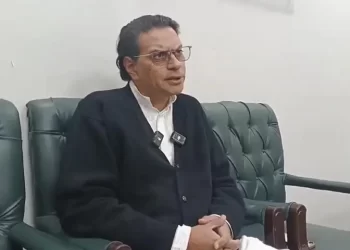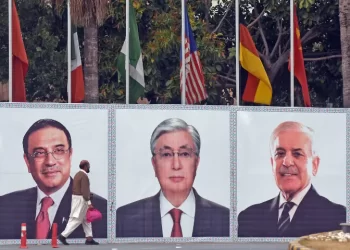ISLAMABAD: The Islamabad High Court (IHC) has been struggling to end backlog as over 16,000 cases are still pending before it, despite managing to dispose of over 8,000 cases in seven months.
According to the statistics available at the court’s website, 7,839 cases were filed and 8,295 cases were disposed of from January to July 2024.
With a pendency of 16,400 cases, this disposal means the backlog is not going to be abridged. Legal experts expressed apprehension about piling up of the pendency.
From January 1, 2023, to December 31, 2023, IHC judges had disposed of 11,170 cases. The disposal of cases has been quite slow since July when the summer vacations were announced for courts across Pakistan despite the countrywide backlog of about 2.2 million cases.
Summary shows only 1,023 cases were decided by judges in June
The summary of cases disposed of by judges of the IHC showed that only 1,023 cases were decided in June.
As per the details, in June 2024, IHC Chief Justice Aamer Farooq decided 471 cases, Justice Mohsin Akhtar Kayani decided 162 cases, Justice Tariq Mehmood Jahangiri 57 cases, Justice Babar Sattar 83 cases, Justice Sardar Ejaz Ishaq Khan 69 cases, Justice Arbab Mohammad Tahir 44 cases and Justice Saman Rafat Imtiaz 56 cases.
According to insiders, a couple of judges have instructed the judicial branch not to fix more than 10-15 cases before their respective courts on a daily basis.
Their staff justified limiting the number of petitions for hearing saying that a large list could neither be heard in a day nor the judge can decide even a fewer number of cases expeditiously if he was burdened with the work.
IHC Justice Babar Sattar during the hearing of a case related to Comsats Institute of Information Technology also warned the additional registrar and deputy registrar of consequences for burdening courts.
In a written order passed in this case, Justice Babar Sattar noted: “The office has fixed cases including ten RFAs [Regular First Appeals], which is beyond the number of cases that can be heard during the court hours.”
It said: “The Presiding Judge and the court’s administrative staff carefully manage the court calendar in view of the time available for hearing each day.”
The court instructed the additional registrar judicial “not to populate the cause list without consultation with the court staff that maintain the court calendar”, adding that “due to failure to abide by such instruction and a complete lack of application of mind in fixing cases, a number of cases have to be adjourned due to paucity of time, which will cause inconvenience to the litigating parties and their learned counsels in addition to the cost incurred by such parties in appearing before the court on a day when their cases cannot be heard.”
The judge warned the additional registrar and deputy registrar judicial of penal action “for wasting the time of litigant parties as well as the court by fixing cases that cannot be heard during the day.”
Interestingly, when this reporter compared the disposal of Rawalpindi bench of the Lahore High Court (LHC) with the IHC, the number of cases decided by four LHC judges was almost equal to the IHC disposal by eight judges.
A senior official of the LHC told media that LHC had devised a case management policy according to which around 30 to 40 cases were fixed before every judge on a daily basis.
He said some of the judges, including senior judge Justice Sadaqat Ali Khan and Justice Jawad Hassan, hear more cases than required under the policy.
Senior lawyer Ahsannuddin Sheikh said IHC was inundated with the political cases. He said since political cases were time consuming, the judges were left with limited time to deal with the other litigation.
An IHC official on the other hand said at present the IHC was short of two judges as there were eight judges against the sanctioned strength of 10.
He said in order to clear the backlog there was a need to enhance the sanctioned strength of the judges.
Published in media, August 11th, 2024








